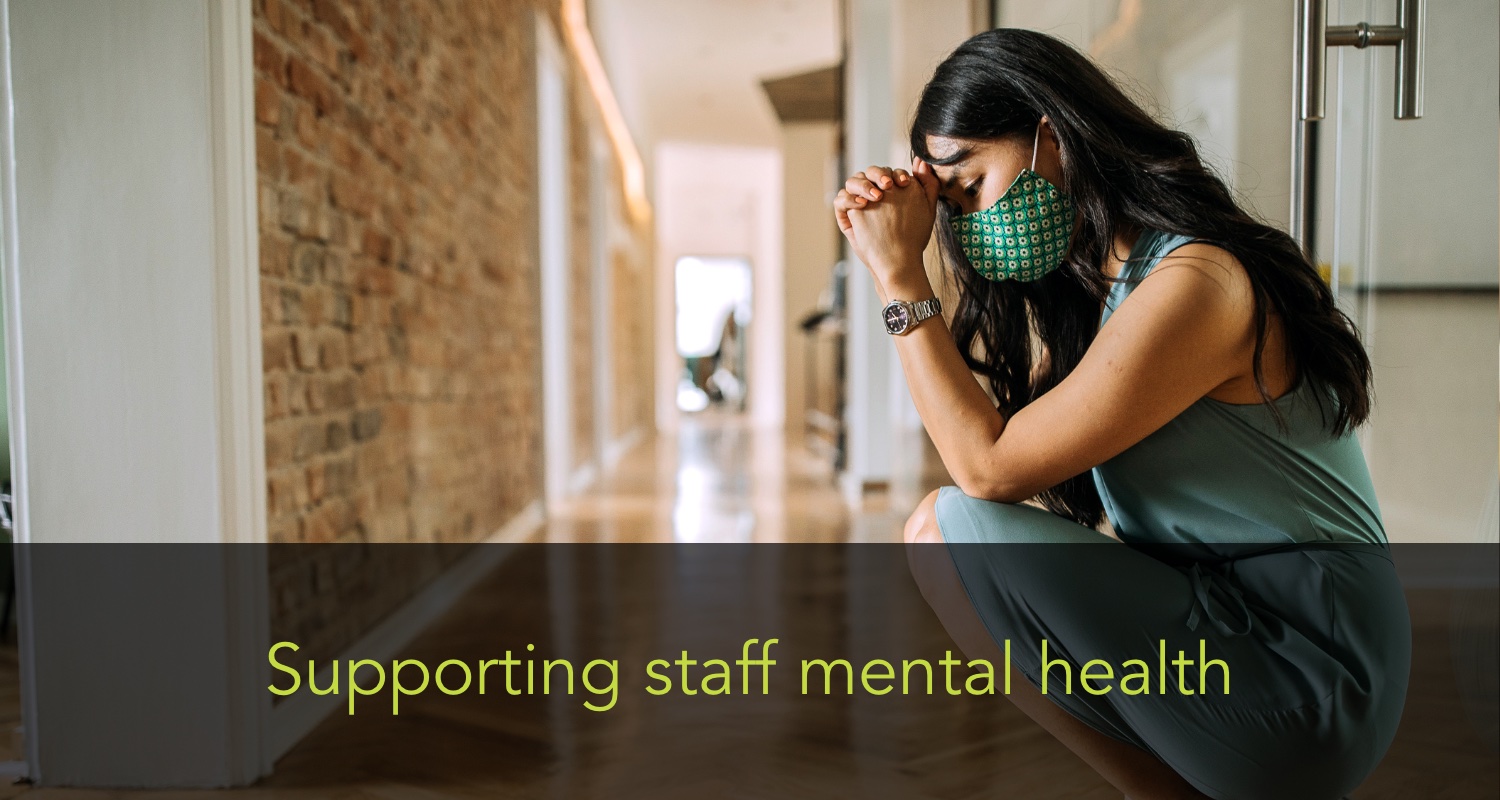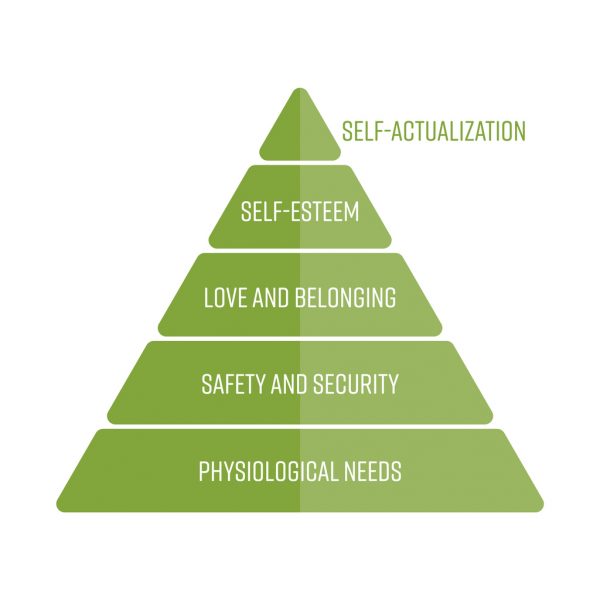Supporting your employees to take care of their mental health is good business sense. Staff who feel secure and happy in the workplace are less likely to take time off sick, are more productive and less likely to start job hunting.

These are all the things you want in a member of staff who does their work well. However, COVID-19 has thrown our way of living upside down. Which means that a lot of what used to make us feel secure, like a job and a home, is no longer the safe things we once thought them to be.
And when we don’t feel safe and secure, then it has an impact on our mental health. In fact, research has found that one in 17 people who’ve suffered from coronavirus has been newly diagnosed with stress, anxiety or insomnia.
But why should an employer put a support system in place for their staff?
Aside from the business benefits of a healthy and happy workforce, when you hire a member of staff, you agree to keep them safe while at work. In fact, ACAS says:
“Employers have a duty of care. This means they must do all they reasonably can to support their employee’s health safety and wellbeing.”
Let’s take a look at why employees may be more at risk of mental health issues as a result of COVID-19.
Changing employee motivation

Psychologists sometimes use Maslow’s Hierarchy of Needs to explain why certain behaviours or actions happen within people. You start at the bottom of the pyramid with your basic needs. These are things like food, shelter, water and safety.
Once these needs are met, you can move further up the pyramid to the sorts of needs that make you happy to go to work each day. You feel part of a team and identify with the company who has hired you.
What COVID-19 has done is challenged whether our initial needs are being met, either at home or in the workplace.
“Usually these needs are met at home,” explains Annayah Prosser, Sustainability Researcher, “but because of Covid, people are feeling threatened more than ever before.
“If you’re in a secure job, the salary gives you the safety and security at the base of the pyramid in pre-Covid times. Whereas now, salary alone isn’t necessarily making you feel safe.
Add into the equation that you’ve got staff being furloughed, so may struggle to pay their bills on less income. Plus, they may have watched their colleagues being made redundant, which makes their job feel less secure. And you have a melting pot for an increase in mental health issues.
Caring for your employees
Recognising that everyone is under some kind of stress this year is important. But equally important is recognising that not every employee will react to what’s happening in the same way. You may have some staff who take it in their stride and carry on work as usual. And others who are on the opposite end of the scale and too scared to leave the house.
Neither of these is the ‘right way’ to act. In fact, there is no right way to act or feel about our current situation. It’s important that, as an employer, you have the right tools in place to recognise and support those who are not coping.
Not every organisation has access to a team of psychologists to help and support their staff, and so you need to look at other ways in which you can make sure your employees are healthy at work.
Raise Mental Health Awareness
You can raise awareness about the increased risk of mental health issues as a result of the pandemic. Engaging your employees in the process will encourage them to think actively about looking out for each other.
Your employees will spend significant chunks of the week with each other. They’ll probably socialise outside of work (or would do in normal times) and as a result, get to know when something isn’t right. Encouraging them to support each other through this time will help flag up behaviours before they develop further.
Adjust how you work
As this pandemic has put everyone under a unique set of stressors, you might need to adjust how you work to reduce anxiety and stress in some of your team. Working from home might be a solution if a staff member feels unsafe coming into work. At the same time, adjusting to remote working may be more challenging for some members of staff.

The social aspect of work, such as catching up with people in the kitchen while making a round of tea, can’t be replicated at home. No matter how familiar you are with zoom. There isn’t a replacement for popping over to someone’s workspace for a chat or bumping into someone on your way back from a meeting.
Those chance social interactions are part of what gives us some of those psychological needs. Without them, some staff may struggle with work as a result.
By understanding how your staff members are reacting to their situation, you will be able to provide help where it’s needed.
Understanding the signs of stress and anxiety.
Depression, stress or anxiety can make it difficult to do even some of the simplest things in life. And knowing that you’re not meeting the right standards at work can exacerbate the problem. It becomes a bit of a vicious circle.
You’re feeling stressed about work, so you’re not as productive. Then you end up awake half the night worrying about what’s going on, so you are tired the next day. Or sleep in. And on it continues, stress adding to the anxiety, adding to the stress.
Recognising the signs of depression, anxiety, and stress mean that you can put the support in place that they need. And try to break the downward spiral.
This will reduce the risk of them needing extended sick leave to recover. And help businesses keep their staff engaged and motivated through one of the most challenging periods we’ve seen in a lifetime.
Have a strategy in place
It is great to talk about mental health and be aware of what might be going on for your staff, but how do you put preventative steps into action?
“Mental health is a huge risk for employers at the moment,” explains Helen Moore, Director, The Employment Solicitor, “and having a plan in place that provides real solutions will benefit every level of the business.”
Which is why we are developing three ways in which we can help your business support positive mental health, including:
1. A strategy day where we help businesses get through the winter with a clear action plan and policy that works with employees to keep them motivated and energised.
2. Mental health policies which back up the work you do within the strategy day. You’ve got the action plan; the policy will reinforce it within the business.
3. Workshops where we create a safe space for employees to explore what’s going on for them. Then we feed this back into the strategy actions, like a virtuous circle of positive actions for your business.
If you’re ready to tackle mental health within your company, get in touch to find out how we can help.

Recent Comments